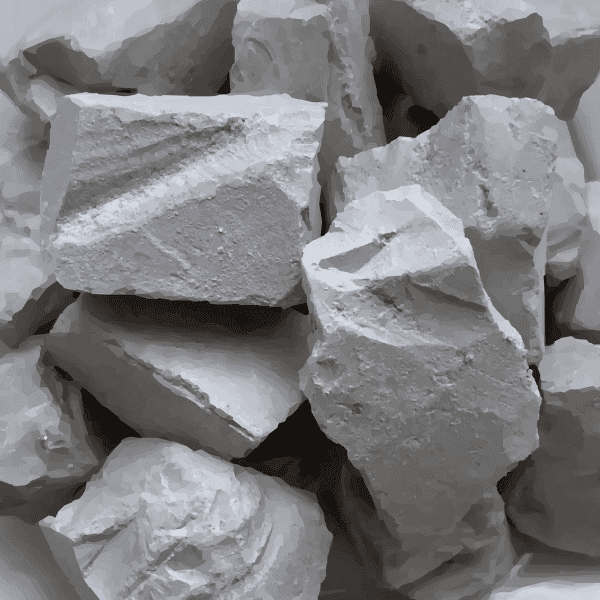
White Kaolin Clay
Kaolin Clay is a naturally soft white clay. It was initially discovered in China, but it can be found in several countries around the world, including the United States. This clay is a great exfoliant, absorbs excess oil, detoxifies the skin, can calm irritated skin, and can even help with digestive issues.
What is Kaolin Clay
Kaolin clay is a naturally occurring soft white clay mainly composed of the mineral kaolinite. It is widely used in a variety of industries due to its fine particle size, chemical inertness, and other beneficial properties. It gets its name from a hill in China where it was originally discovered. It is now mined all over the world including countries like France, Germany, and the United States.
How it is Made
Kaolin Clay is formed from the mineral kaolinite. Kaolinite forms best in soil and rocks that are in hot and humid climates. The clay is mined, and then goes through a refining process where it is dried, ground, and filtered.
About Kaolin Clay
The use of kaolin clay dates back thousands of years. It was first used by the Chinese during the Tang Dynasty (618-907 AD) for making porcelain. This was later adopted by the Europeans in the early 18th century. In addition to its use in pottery and porcelain, kaolin clay has been historically valued for its medicinal properties, used in traditional Chinese medicine to treat various ailments, and in Western medicine as an ingredient in gastrointestinal treatments. Over the centuries, kaolin clay's applications have expanded to include uses in cosmetics, paper production, and industrial processes, showcasing its versatility and enduring importance.
Benefits of Kaolin Clay
- Fine particle size makes Kaolin clay a great, gentle exfoliant. It’s helpful in removing dead skin cells without causing irritation.
- Kaolin clay aids in absorbing excess oils from the skin.
- Kaolin clay can help to cleanse and detoxify the skin by drawing out impurities and toxins.
- Its soothing properties calm irritated and sensitive skin.
- Medicinal properties in the clay have been used to support the body with digestive issues like diarrhea
Common Ways to Use Kaolin Clay
Kaolin clay is an extremely versatile clay used in many ways including:
- Skin care
- Cleansers
- Scrubs
- Facial masks
- Make up
- Powders
- Foundations
- Ceramics
- Paint
- Manufacturing
- Paper
- Rubber
- Plastics
Safety Concerns
Kaolin clay is considered safe for external use.
Drug Interaction: May interfere with topical prescription medical.
Breastfeeding and Pregnancy: Safe for both
Other Concerns: None
Select Studies About Kaolin Clay
This study shows that kaolin clay absorbs nitrates and phosphates from water as a cost-effective way to clean and remediate water.